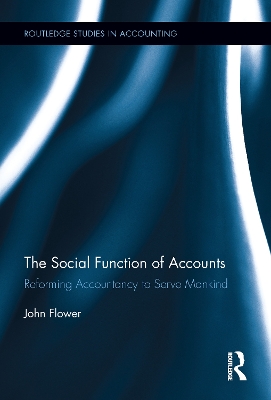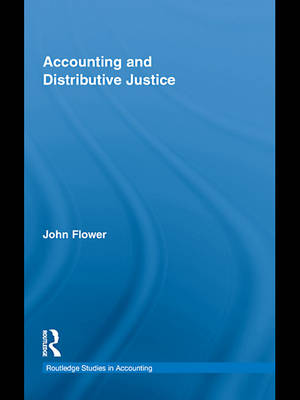Routledge Studies in Accounting
3 total works
Accountancy as presently practised is tied to the paradigm of modern financial capitalism with its reliance on market solutions and the maximization of the firm’s profits, which are the fundamental causes of most these problems.
The Social Function of Accounts argues that accountancy, as currently organized and practised, is failing society, both in Britain and in the world as a whole. Examining the current problems afflicting the world: financial crises and instability, global warming, degradation of the environment, growing inequality, this book asks the question - what contribution does accountancy make to the solution of these problems? The book argues that the accountancy profession does not serve the public interest, notwithstanding its claim to this effect.
The Social Function of Accounts argues that the moral responsibility of the accountant is analysed with reference to the principal theories of ethics continuing that the individual accountant has a moral responsibility to consider the impact of his actions on other people and on society as a whole. This responsibility is then analysed in a series of chapters dealing with four specific aspects of the matter: Distributive Justice, Sustainability, Financial reporting & the Accountancy Profession.
Concluding with a call for the accountancy profession to adopt a new ethic of service to the public The Social Function of Accounts redraws the boundaries of current accounting literature and will be vital reading for academics, researchers and policy makers in accounting and related disciplines.
The key message of this book is that the world is changing and that accounting, financial reporting and auditing must change in order to avoid the prospect that all three fail to meet the demands of society and thus become irrelevant. The book identifies four forces that will cause the future to be different from what it is now.
- Globalisation: Accountancy practice in the UK, and globally, will be increasingly determined by international bodies, such as those of the European Union and the International Accounting Standards Board; especially post the 2007/8 crisis.
- Society's demand for more ethical behaviour by business: The recent public outrage over the tax avoidance practices of multinationals has demonstrated that society will no longer tolerate unethical behaviour on the part of big business, audit firms and others.
- The environmental crisis: Accountants will no longer be able to argue that the impact of a business's activities on the environment or on a narrow view of the supply chain is not their concern.
- Technological change: In the future financial reporting will be largely effected through the Internet and real-time reporting. The present unwieldy and largely unread printed reports will become a relic of the past.
Accountancy needs fundamental reform. Integrated reporting , whilst still keeping to some of its original ideals, seems to have failed in its current form. This book develops a novel but thoroughly practical form of financial reporting - hybrid accounting - which should enable accounting and financial reporting to meet the challenge of the future.
Accounting and Distributive Justice challenges the basic assumptions on which the current practice of financial reporting is based. It argues that the objective of financial reporting should be to contribute to the achievement of distributive justice and not the optimal allocation of resources as in the traditional capitalist paradigm. It explains in non-technical terms the principle philosophical theories of justice and argues that a firm has a moral responsibility to seek distributive justice in its dealings with its shareholders, employees, suppliers, customers, and other people with whom it has dealings, who are considered to be the firm's stakeholders. The book introduces concepts of distributive justice to accountants and provokes them into reflecting on how the discipline of accounting can best serve the cause of justice. Accounting and Distributive Justice provides both a philosophical foundation and a practical game plan for the future of a more sustainable accounting practice.


